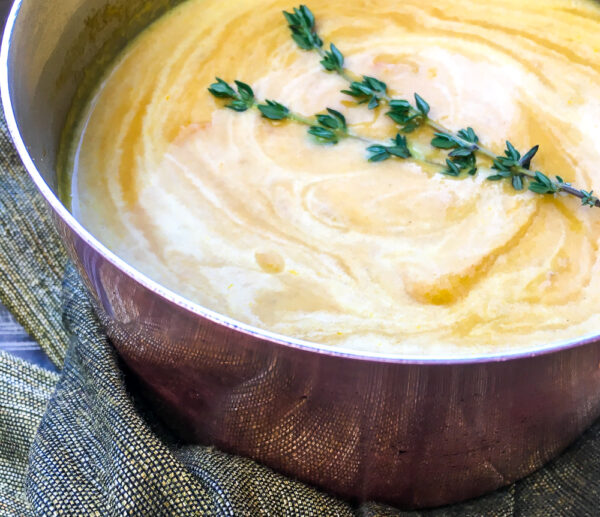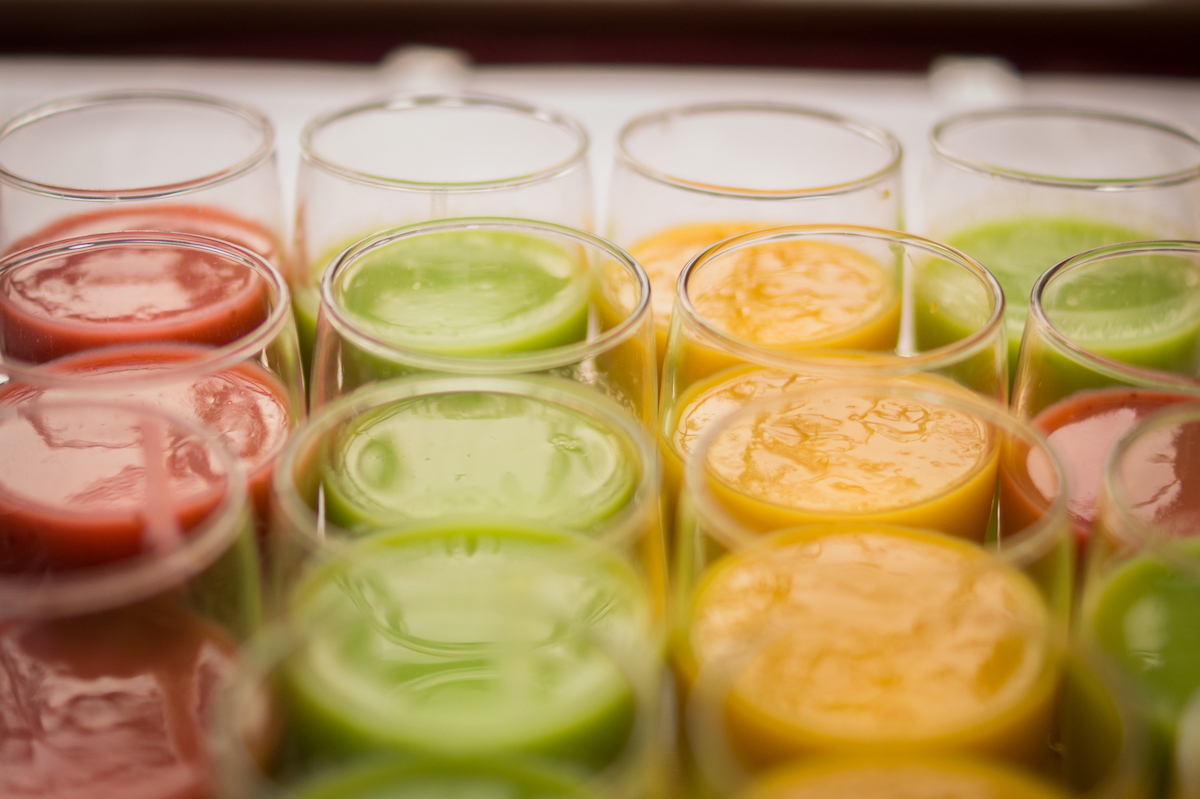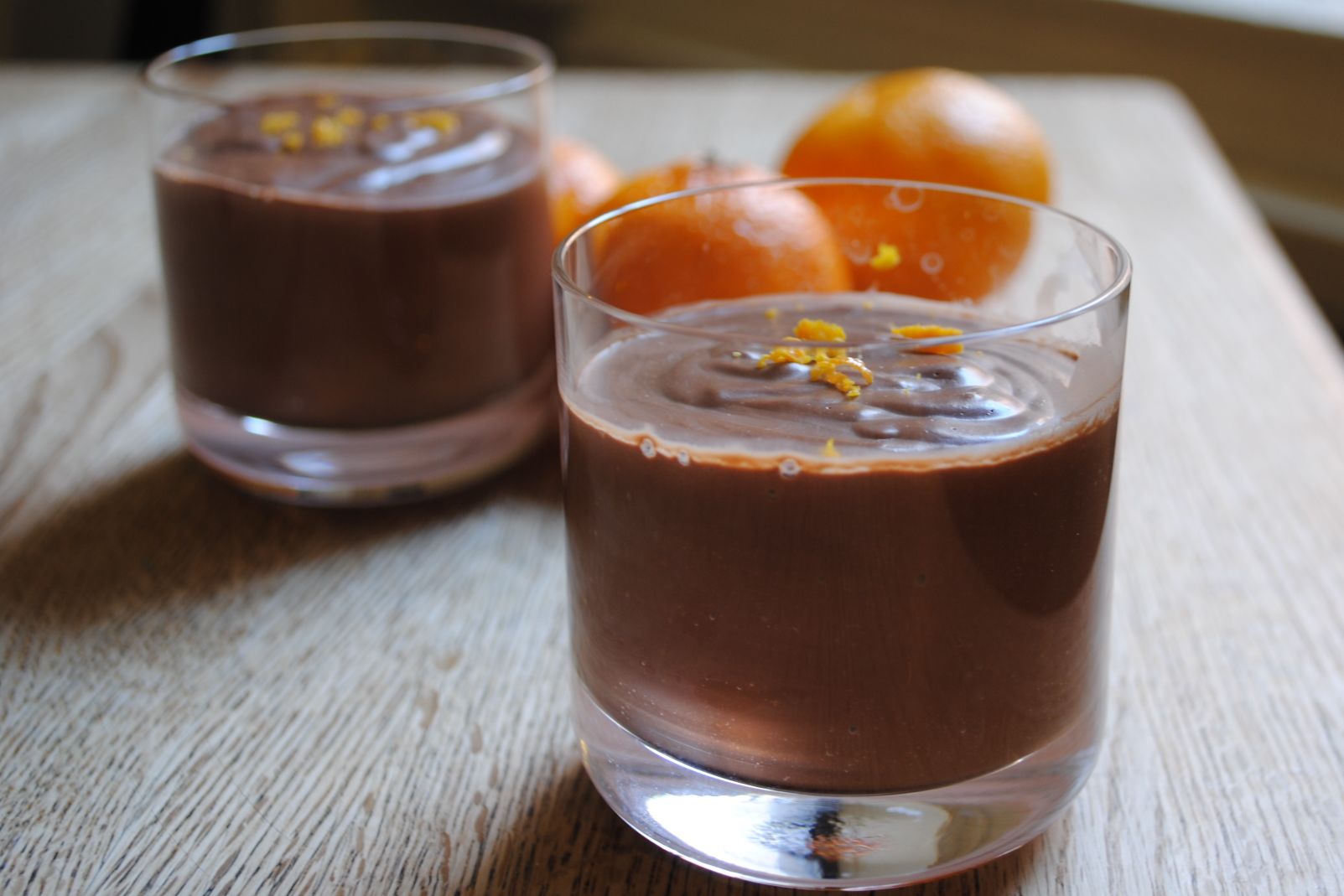Reading Time: 6 minutes
About eight years into my experience with chronic Lyme and co-infections, I developed a sensitivity to caffeine, seemingly out of the blue. One of the ways I attempted to cope with the lack of energy caused by the illness was by drinking coffee – and lots of it! The fatigue was so debilitating that I would often have two or even three double-shots just to get through the day! For quite a while this didn’t seem to cause any adverse effects, then one day all of a sudden my heart started racing out of control.
It took me a while to figure out that caffeine was the problem. After all, I’d been drinking coffee for years without any issues. But soon the connection was undeniable. Drinking coffee began to feel like a game of Russian roulette. Some days I was ok, but other times it would trigger rapid and irregular heartbeats that left me debilitated for hours and at times, in a state of extreme fear and anxiety. It just wasn’t worth it anymore.
While my health was still at its most sensitive, I avoided caffeine completely. But as I started to feel better I began to experiment with more gentle sources. I found that I tolerated tea without any problems – especially high-quality green and white teas. Around this time matcha was becoming more popular. Matcha gave me an energy boost, without the negative effects of coffee. However, I realized that it can also be quite stimulating and is best used with respect, especially when you are working on healing the adrenal glands.

In this recipe, I use 1/2 teaspoon of matcha powder, which provides approximately 35-40 mg caffeine, while in comparison a cup of coffee typically has about 200 mg. Including Ashitaba and other superfoods makes it possible to use less, while still offering a latte with plenty of flavor and nutrition.
While I do miss being able to enjoy a cup of coffee, I’ve actually come to appreciate tea so much more. (My husband calls me the tea lady now because I always have a collection of specialty teas to choose from). Tea gives me a mild energy boost, helps with concentration and focus, and doesn’t produce an energy crash a few hours later like coffee can do.

Benefits of the Superfood Goddess Matcha Latte
One way to balance the effects of a stimulating beverage is to combine it with nourishing superfoods like in this recipe. I call this a Superfood Goddess Matcha Latte because it contains medicinal compounds that directly support women’s health. These ingredients are especially beneficial for women who are perimenopausal or menopausal because they help to nourish optimal hormone levels and enhance skin renewal.
You don’t have to use all of these ingredients. Feel free to use them all if you like, or just choose two or three, depending on the benefits you are seeking the most.
Matcha
Matcha comes from the same plant as other green teas, but the way it is grown and processed results in a higher concentration of chlorophyll, antioxidants, and amino acids. In particular, matcha is high in L-theanine, which mitigates the effects of caffeine, and increases alpha wave activity in the brain, which can promote relaxation and reduce stress. Look for organic ceremonial grade matcha that is tested and certified to be free of heavy metals, mold, and radiation like this Pique Tea Sun Goddess Matcha (use the code LIVEREMEDY for 5% discount).
Ashitaba
This is a green vegetable known for its anti-aging and beautifying properties. It is also a source of magnesium and B vitamins, and in Eastern medicine, it is regarded as a shen tonic, which relates to its ability to promote emotional and spiritual wellbeing. I like this wild-harvested raw Ashitaba Powder by Sun Potion. If you’re extra sensitive to caffeine you could even leave out the matcha and use this in its place, as it has a similar appearance and green flavor.
Shatavari
This Ayurvedic herb supports female hormonal balance, throughout the life cycle, but particularly during perimenopause and menopause, when estrogen levels may begin to decline. Personally, I have found it to be effective in reducing menstrual pain, however this required consistent daily dosing of at least one teaspoon. The brand I prefer is Banyan Botanicals Organic Shatavari Powder.
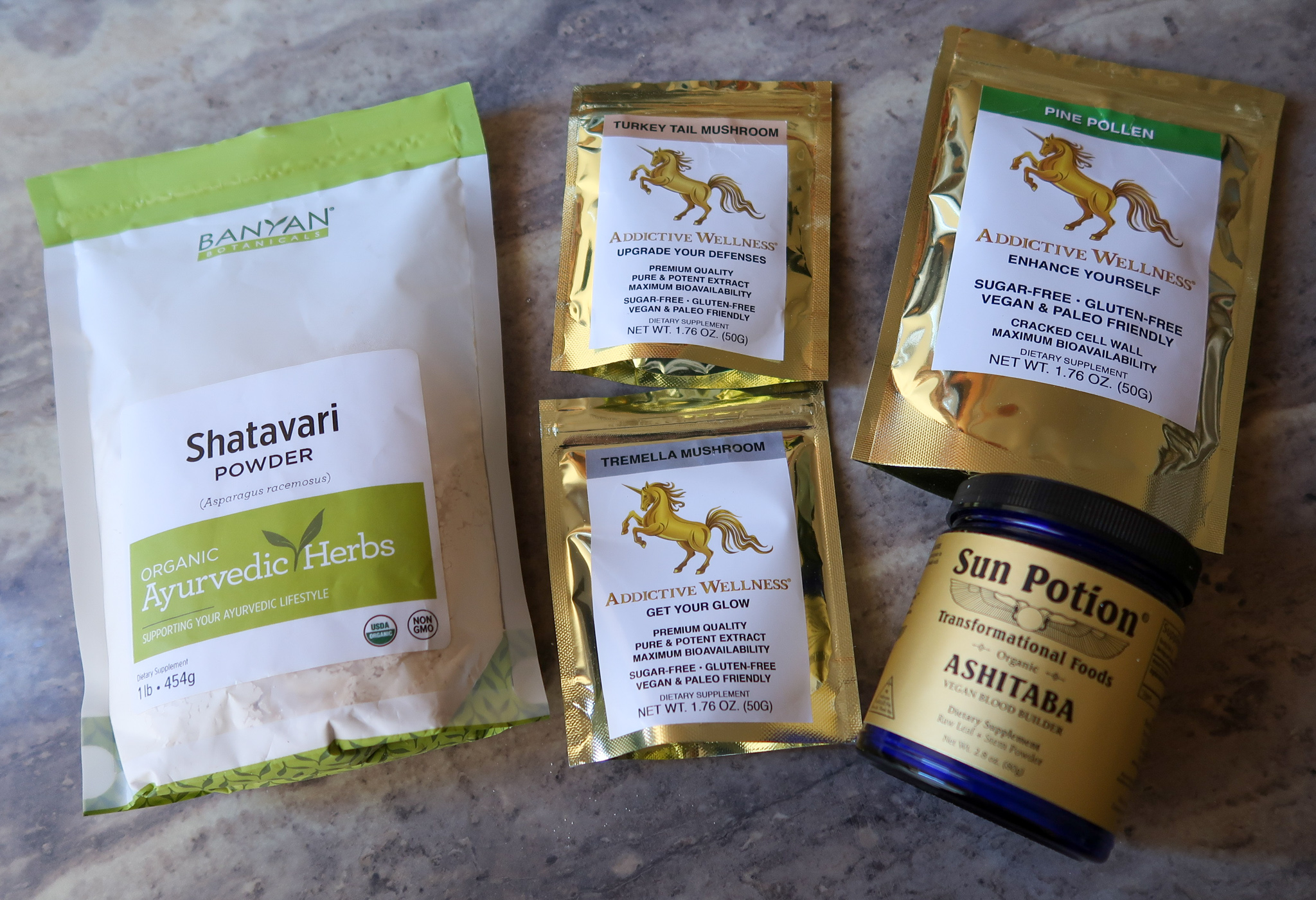
Tremella
This medicinal mushroom is a plant-based alternative to collagen. It can hold up to 500 times its own weight in water, which promotes hydration of the skin and a. glowy, youthful appearance. Tremella is also a source of vitamin D and has anti-inflammatory properties. I use and recommend Addictive Wellness Tremellla (use the code LIVEREMEDY for a 10% discount).
Turkey Tail
The turkey tail mushroom is best known for its ability to stimulate immunity. Research suggests that it may improve immune system status in those who have undergone treatment for breast cancer. I prefer Addictive Wellness Turkey Tail Mushroom (use the code LIVEREMEDY for a 10% discount).
Pine Pollen
In Oriental Medicine, pine pollen is said to nourish all five organ systems and was traditionally used to support healthy hormone production. It is a complete protein and contains bioavailable androgens such as testosterone and androstenedione. For this reason, it has become popular as a supplement for men experiencing a hormonal decline. However, women also need testosterone – although at a much lesser amount than men – and if levels become low this could be involved in a lack of libido and an increase in body fat, as commonly occurs in menopausal years. Look for cracked cell wall mason pine pollen like this one from Addictive Wellness (use the code LIVEREMEDY for a 10% discount).
Almond Milk
In the Ayurvedic tradition, almonds are thought to build ojas – the foundational energy reserves of the body – helping you to feel balanced and grounded. Research also shows that including almonds in the diet significantly decreased wrinkle severity in postmenopausal women.
Wildflower Honey
My sweetener of choice in a matcha latte is raw wildflower honey but you can use whatever you prefer. Other options could be organic maple syrup, monkfruit, or stevia.
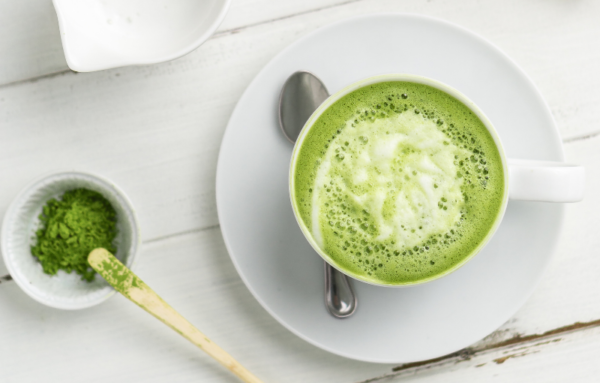
Equipment
- Matcha Whisk or Blender
Ingredients
- 2/3 cup almond milk unsweetened
- 2/3 cup water
- 1 tsp shatavari
- 1/2 tsp Pique Sun Goddess Matcha
- 1/2 tsp ashitaba
- 1/2 tsp tremella
- 1/2 tsp turkey tail
- 1/4 tsp pine pollen
- 1 tsp wildflower honey
Instructions
- Warm almond milk and water together on the stovetop in a small saucepan to just below boiling point. (You don't want it too hot because it can damage the flavor and nutritional benefits of matcha).
- Add about a third of the milk mixture to your mug, then add all other ingredients, except the honey. Use a matcha whisk or electric milk frother to blend until well mixed and frothy.
- Add honey and stir to dissolve.
- Pour in the rest of the milk mixture.
Notes
References:
7 Proven Benefits of Matcha Tea
Does Ashitaba Have Health Benefits?
Chinese Vegan Guide To Snow Fungus
Phase 1 Clinical Trial of Trametes Versicolor in Women with Breast Cancer
Unhealthy Testosterone Levels In Women: Causes and Symptoms
Disclosure: This article contains affiliate links, which means that if you click on a link and purchase a product we receive a small commission. Thank you for supporting Live Remedy!
